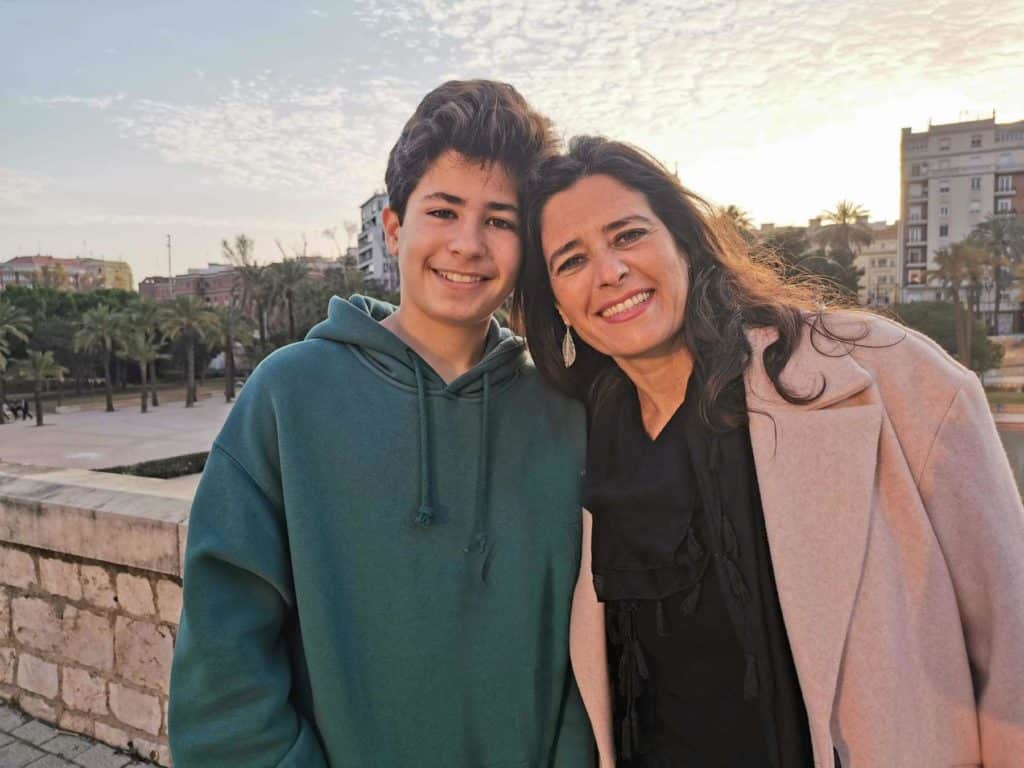
A powerful truth in the parent-child relationship is that our actions as parents always speak louder than the words we convey to our children. Kids are attentive and intuitive by nature, making them keenly aware of our emotional energy and how our behavior tells the true story of how we are feeling in any given moment. Their curiosity about life and innocent nature makes them more sensitive to the nuances of our actions as they seek acceptance, belonging, and approval. The truth is, the way we project our emotions has an impact on the parent-child bond for both younger children and in the tween and teen season.
Case in point was when my daughter was nine and I had a particularly challenging morning with my husband. As I made her breakfast, I thought I was hiding my emotional angst while talking to her about her upcoming school day. Upon handing her the waffles I prepared, I asked her how they tasted.
“Not very good,” she quipped.
“What do you mean? I made them the same as always?”
“Not really, mom. You didn’t make them with love this morning.”
Oof. She was spot on. Even though I spoke caring words to my daughter as I made her breakfast, they came against the backdrop of a furled brow and spicy zest in how I maneuvered through the kitchen.
I think we can all reflect on our childhood and remember how confusing it was to see our parents behave in ways contradictory to the words they spoke. The discontinuity is a real challenge when you are trying to figure out who you are and how life works—especially during the teen and young adult years.
I learned the flip side of this discontinuity lesson the hard way as a mom when my kids were all teens. My husband and I always told our kids they could tell us ANYTHING without fear of judgment. We even implemented ‘no consequence conversations’ during the teen years so our kids had a safe space to unload without the worry of repercussions. While our words were wonderful and we really meant what we said, our actions when our kids confessed certain things—mine specifically, didn’t always tell the same story.
Why? Because I was consumed with fear as a mother. Fear of failing my kids, fear for their safety, fear for their well-being, and fear of fear itself.
So, when my teens told me things difficult to hear, fear was often written all over my face and billowing behind me like the stench cloud following Pig Pen from the Peanuts. My kids saw right through my plea for them to tell me anything and into the reality of my angst. It was a challenge for them to believe they could be vulnerable when they anticipated such a desperate reaction.
In full transparency, my fear meter was on overdrive because of unresolved traumas from my own childhood. My lack of self-worth and self-love created a perpetual lens of fear through which I saw myself and the world.
Then, all three of my kids were in high school when we had a school shooting in 2012 that took the lives of three of their classmates. My husband and I just happened to be pulling up to the high school minutes after the shooting began and were then blocked in by police cars and watched the nightmare unfold before our eyes. It was terrifying and took me years to process and heal from.
But it took all three of my kids in their young adult years to tell me how my fear-based parenting style was holding them back. They expressed their desire to live their lives without worrying about my worry.
Ugh.
Again, all of them spot on.
A reminder that the loudest voice our kids hear when they become teens and young adults is ours—and sometimes that voice doesn’t speak. Instead, it communicates with images of our actions. Or better said, our reactions.
For years I rationalized my fear as a mother as a measure of my love for my kids. But fear is not love. Fear is a distortion of love. So, I’ve done a lion’s share of personal development work on myself to better serve my kids, myself, and the world.
I’m now doing my best to model how actions do speak louder than words—this time from a more positive bent: choosing to always live from my true self. Instead of attempting to hide my emotions in the shadows and living from my false ego identity, I’m modeling the courage to be authentic. I’m demonstrating the resolve to forgive myself as I do the best I can while I heal and transform.
And I’m showing my kids what it means to live from love rather than fear by showing myself unconditional love while I learn to do better.
Related: Use This Question to Help Your Teen Grow Through Hard Times
Living as your true self so you can be a stronger parent
All of us have the superpower to make these shifts in our life so that our actions are in full integrity and alignment with the words we speak. Here are a few ways I practice living as my true self:
1. Know thyself and LOVE thyself
The only reason our actions are ever incongruent from our words is because we’ve lost sight of who we truly are. As Rollin McCraty says from HeartMath Institute, “Lack of alignment with our deepest self is the most unrecognized stress on earth.” And the number one cause of stress? FEAR. We fear who we are and who we’re not. Sadly, we fear our power more than our weaknesses at times. When deny our true self—our LOVE identity, hide our true emotions, and pretend to be someone we are not, no matter what we say will be tainted by the conflicting energy within us and released in our actions.
But when we remember who we really are and accept the totality of our existence without judgment as we heal and transform, everything else aligns by default. We don’t have to pretend, wear masks, or deny anything. We can be honest with our kids because they can handle the truth more than the falsity of our charades. The clarity, transparency, and vulnerability help them be real with themselves.
Related: Dear Teen Daughter, Learn How To Love Yourself Instead Of Being Liked By Others
2. Question your stories and beliefs
The meaning we assign to anything determines our experience. Our perspective is directly tied to what we believe, which then dictates how we feel about a person or situation—including ourselves. Therefore, if we don’t stop to inquire about the stories our ego identity scripts that drive our crunchy emotions and sticky feelings, it’s impossible to understand the root of their existence.
When we start to ask ourselves why we feel afraid, angry, insecure, not enough, bitter, sad, overwhelmed, and the list goes on (a practice of Shadow Work), we can evaluate the stories and beliefs driving these emotions. Part of that evaluation includes getting real about whether these stories and beliefs are serving us and our loved ones. Byron Katie offers a free practice called, The Work, which includes four simple questions to ask about a belief:
- Is what I believe true?
- Can I be 100% certain this is true?
- How do I behave when I believe this is true?
- Who would I be without this belief?
3. Do more of what allows peace to emerge in your life
Peace is not something we attain. Peace is who we are in our natural state. When we are aligned with our deepest self and living from a space of authenticity, peace finds us. Peace is always there as the still, reflective waters within us. But the noise of our mental, emotional, and spiritual conflict is like the wind causing ripples on the inner pond. When we quiet ourselves and get in tune with our true self, these winds subside, and the stillness emerges as a result.
So, whatever activities allow this stillness to emerge, do MORE of them. Like way more. Maybe that looks like more time in nature, journaling, alone time, gathering with loved ones, creating something, or reading a book. You deserve to experience peace because you deserve to experience the real you. Make your well-being and the miracle of your existence a priority.
Being aligned with your deepest self is the best gift you can give your family. Focusing on being the best and truest you over any form of doing is an action that will ALWAYS speak louder than any words. And the ripple effect of choosing the power of love over fear spans generations and changes the world.
If you’re looking for more tips and advice on raising kids through the difficult teen and tween years, we recommend Loving Hard When They’re Hard to Love by Whitney Fleming.

Parenting teens and tweens is hard, but these popular posts might make it a little bit easier:
Raising an Independent Teen? Some Kids Were Just Born to Let Go
25 Christmas Activities To Do With Teens That They’ll Actually Think Are Fun
Why Your Teen Son Is Acting Distant and How to Improve the Situation
10 Brilliant Non Tech Gifts For Teens To Get Them Off Their Screens
*This post contains affiliate links where we may earn commissions for items purchased from links on our site.






3rfo3e